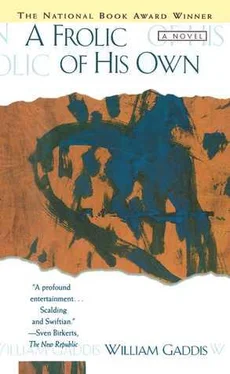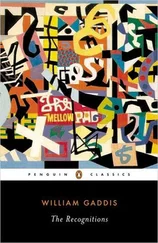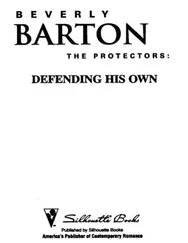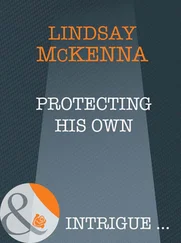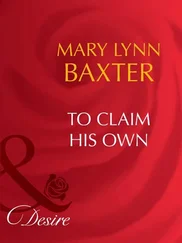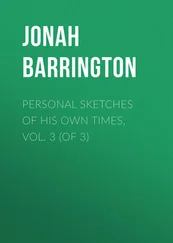Q Took? That he simply took them? And no one took exception to this practice that you know of, did they?
A Not that I, no.
Q In other words, these ideas, characters, twice told tales, odd quirks of history, it was all just there for the taking, wasn't it?
A All right.
Q Whether you were Shakespeare or Joe Blow, you could turn any of it into a play if you wanted to, couldn't you?
A Well not the, if Joe Blow could write a play?
Q Do you mean it would depend on the execution of the idea?
A Well, yes. Yes of course.
Q Not the idea, but the way it was expressed by the playwright? Isn't that what makes Shakespeare's King Lear tower above Joe Blow's King Lear?
A Obviously.
Q They are separate things, then?
A What, Joe Blow's King…
Q I mean the idea and the expression of the idea, they are separate things aren't they?
A Well, in the sense that…
Q I think we've been over the ground. Will you please simply answer the question? Read it back please.
(Question is read.)
A Yes.
Q Now may I ask you, as a lecturer in American history with particular expertise in the Civil War, would you say that during that conflict the hiring of a substitute to go up and ñght in one's place constituted anything extraordinary?
A Well of course, in the South of course a planter who owned more than forty slaves was automatically exemp…
Q Mr. Crease, we are not here today to discuss that peculiar institution. My question was a simple one and I would like you to answer it. Read it back please.
(Record read.)
A No.
Q It was, in fact, a not uncommon practice on both sides of the conflict for those who could afford it, was it not?
A It, yes.
Q There was no real opprobrium attached, was there?
A Not, no but…
Q And the idea, the idea that a man of split allegiances might find himself in a situation obliging him to send up a substitute in his place in each of the opposing armies, while it was hardly an everyday occurrence, was certainly within the realm of possibility wasn't it?
A Yes, it…
Q And that the two might even meet in battle?
A Yes, yes that's. .
Q In fact there was at least one such documented instance, was there not?
A That's what my…
Q Where both were, in fact, slain? In other words, a sort of quirk of history, the kind Shakespeare drew on freely when he needed a plot or a character? He could have pointed to Holinshed and advertised King Lear as based on a true story couldn't he?
A If he, I suppose so, yes.
Q So that in this action you're not claiming protection for an idea. What you claim has been infringed here then is not the idea which occurred to you over a period of time.
MR.BASIE: You have not been asked a question. That was a statement.
MR.MADHAR PAI: Please do not interrupt the answer.
MR.BASIE: It was not a question. MR.MADHAR PAI: I believe it was a question. You object as to form?
MR.BASIE: I'm objecting to the form of the question, yes. It was not a question. MR.MADHAR PAI: You may object if you want to, but please do not interrupt the answer.
MR.BASIE: Would you read it back, please?
MR.MADHAR PAI: I'd like to clear up this point before we break for lunch.
Read it back.
(Question read.)
Q Again, you don't claim protection for that idea do you?
A I claim protection for the idea too yes, if the. .
Q You do?
A …if the idea is copied in a vulgar, demeaning way.
Q The way it is expressed, is that what you mean? Can we separate the idea from its expression, sir? Do we understand each other?
A Yes, yes we understand each other. When the idea is used in the context of the expression, combined with the expression, then the idea becomes part of the abuse I'm referring to.
Q You don't claim any proprietary interest in the Civil War, do you?
A No, no, no.
Q In the battle at Antietam, any more than Shakespeare could lay a claim to the siege of Aleppo?
A No.
MR.MADHAR PAI: Let me take a moment to speak to Mr. Smith? Please note for the record that counsel are conferring. (Counsel confer.)
MR.BASIE: Is it on the record that you took time out?
MR.MADHAR PAI: The difference is that I am not under oath.
MR.BASIE: I didn't say there was a difference. I said is it on the record that you took time out.
MR. MADHAR PAI: Yes.
MR.BASIE: I would like the record to show that there was no pending question.
MR.MADHAR PAI: We will continue the examination when we reconvene at one o'clock.
AFTERNOON SESSION
1:5O p.m.
OSCAR L. CREASE, resumed the stand and testified further as follows:
MR.BASIE: Before we start, but on the record, I want to say on behalf of Mr. Crease that he expects that this session will be more courteous and more civilized than the last one.
MR.MADHAR PAI: That's entirely up to you, Harold.
MR.BASIE: That's not Mr. Crease's feeling.
MR.MADHAR PAI: I understand that, old sport.
MR.BASIE: Quite often, when I was out of it, I recall that he was not being treated with courtesy.
MR.MADHAR PAI: He felt that he was not treated with courtesy?
MR.BASIE: Yes.
EXAMINATION (cont'd) BY MR.MADHAR PAI Q Is that right, sir? A Yes. Q I'm sorry you felt that way.
We are dealing with the subjective here, and I imagine it is possible that people form different views of things, but I view you with consummate respect, and in doing my job, if you found me abrasive or discourteous, I would appreciate it if you would chalk that up to a misconception of the way I feel, both about you and about my work, which I take altogether seriously. I might note, in evidence of my good faith here, my acquiescence in delaying this afternoon session to accommodate the nap which your condition dictates and which commands my complete sympathy.
Let's proceed. You are still under oath. Fair enough?
A All right.
Q I am concerned about something. If I understood you, Mr. Crease, I want to clarify something with respect to the idea which led to Defendants' Exhibit 1 and its expression, which is Defendants' Exhibit 1, and I ask you again, are you claiming protection for an idea, an idea as separate from that work?
A I thought I'd explained that.
Q I understood a conflict in your answers, that you gave two. That at first you said it was not an original idea…
A I gave a clear answer. The idea executed is the idea expressed, transformed into a play, in other words it's definitely bound to the execution. So there are two things there to talk about. One is the idea and the other is the execution of the idea which is the work, the work we're talking about, the play. When the idea is tied with the execution, then they are both unique and separable as such and defendable.
Q The idea apart from the work is not protectable and is not claimed as protectable by your…
A Anybody can say, 'Here's a man who hired two substitutes in the Civil War on both sides and they were both killed in the same battle.' Anybody Can say that's an idea.
Q I respectfully submit that is not what is expressed in Defendants' Exhibit 1, that what is expressed in Defendants' Exhibit 1 as testified by you is a far more egocentric notion than a mere battlefield, that it is heavily laden with symbolic overtones of death and suicide of a moral nature.
MR.BASIE: I must direct you not to respond. You have not been asked a question.
MR.MADHAR PAI: You object as to form?
MR.BASIE: Would you read it, please.
MR.MADHAR PAI: We are going to be a lot more businesslike this afternoon because I am not going to have this again. Read it back. (Question read.) Q Do you agree or not agree?
MR.BASIE: Off the record. MR.MADHAR PAI: Nothing off the record.
Q Do you agree or disagree with that? A I have to, I'm sorry, I wasn't listening. You will have to read it again.
Читать дальше
